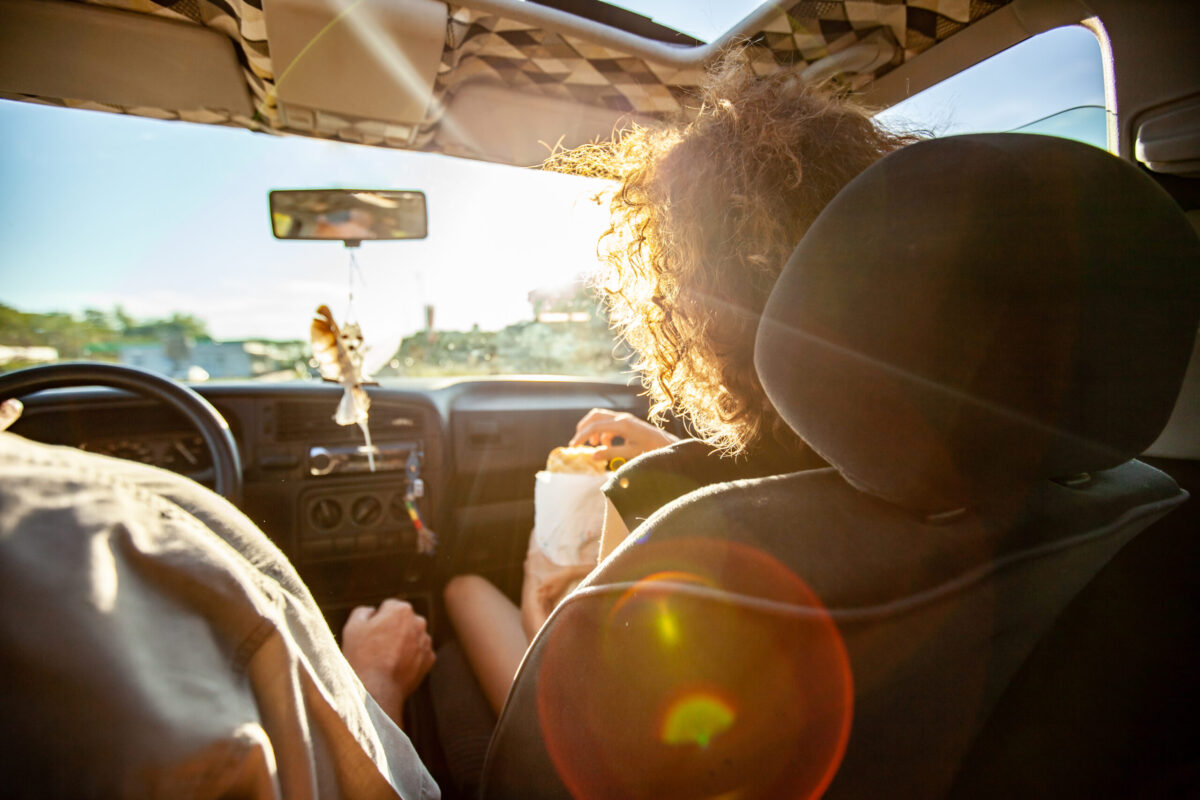Summer road trips are a time-honored tradition for many people. Getting away can help improve your physical and mental health. Unfortunately, those trips often include eating high fat and high calorie processed food purchased along the way, says Sarah Provence, a registered dietitian with BlueCross BlueShield of Tennessee.
“Putting in the effort to eat healthy on road trips can improve how you feel,” says Sarah. “If we fuel our bodies well, it will give us more energy to enjoy our trip. So, when you’re packing your suitcase, think about packing healthy snacks and other foods for the road ahead.”
Here are tips to help you eat healthier on your next road trip:
1. Plan ahead
Sarah: The biggest pitfall is not planning ahead. People often hit the road and later realize they are hungry when there are limited food options – especially healthy ones – nearby. Before you leave home, sit down and look at a map. Figure out how long it will take you to arrive at your destination and research restaurants along your route. (You can even check out the menus online.) Or you can pack a lunchbox or a cooler with healthy foods.
2. Pack a variety of foods
Sarah: As tempting as it may be to just toss a few bags of candy or chips into the car, you’ll be glad later if you take the time and effort to pack a variety of foods. A popular trend right now is for parents to create a “snackle box.” This is a small tackle box or bento box divided into compartments with a variety of finger foods to snack on. Having a variety of snacks, including sweets, salty food, fruits, vegetables and proteins gives kids more options. And they might just surprise you by also eating the healthy foods.
3. Get organized
Sarah: Make sure you pack the right amount of food, too. If you don’t bring enough, you may end up stopping for fast food or buying high-fat snacks at a gas station. But if you bring too much food along with you, the food may take up valuable real estate inside your car that you might need for clothes, shoes, camping gear, etc. Consider organizing your cooler or bag of snacks by packing individual portions that are easy to grab. Then stash the snacks in an easily accessible location.
4. Don’t forget the protein
Sarah: Whether you’re snacking in the car, picnicking at a park, or eating at a restaurant, be sure to include foods that are high in protein. Protein will help keep you full longer. So, you’ll be less tempted to load up on candy and other unhealthy snacks from a convenience store. This could include nuts, seeds, seed butters, beans, chickpeas, edamame (these can be cooked at home and then chilled and stored in a lunch box), milk, yogurt including greek yogurt, cheese, cottage cheese, hard boiled eggs, rotisserie chicken, turkey, pork, beef, salmon and tuna.
5. Don’t wait too long to eat
Sarah: If you try to push through a long stretch of driving before you stop to eat, you’re going to be ravenous. And it’s a lot harder to make a healthy choice when you’re starving.
6. Stay hydrated
Sarah: Don’t forget to bring along something to drink, too. But don’t just limit yourself to coffee or caffeinated drinks, which may be your beverage of choice to keep you awake on a road trip (especially if you’re driving). For one thing, you may consume so much caffeine that you won’t be able to sleep when you reach your destination. Secondly, drinking water will do a much better job of keeping you hydrated. Water can also help you if you have a tendency to get constipated while you travel. If plain water isn’t your thing, try flavored water or carbonated water instead.
7. Remember food safety rules
Sarah: Some foods must be kept cool so bacteria won’t grow and make you sick. You shouldn’t leave any perishable food out at room temperature for more than two hours—or one hour if the food is exposed to temperatures above 90 degrees. So, if you’re planning to bring along something like chicken salad sandwiches, be sure to pack them in a cooler with ice packs. And put any leftovers back in the cooler as soon as possible.
Also, if you’re planning to bring food along to keep at your destination, do a little homework and find out if you’ll have a refrigerator there. Will you be able to refreeze any ice packs that you’ve brought along? If there’s no fridge or freezer available, will you be able to get ice to refill your cooler? If you know you won’t have access to a fridge, freezer, or supply of ice to keep perishable food cool, consider bringing only shelf-stable food with you. Options can include whole grain crackers, dried fruit, popcorn, apples and bananas.
Get more information about specific health terms, topics and conditions to better manage your health on bcbst.com. BlueCross BlueShield of Tennessee members can access wellness-related discounts on fitness products, gym memberships, healthy eating and more through Blue365®. BCBST members can also find tools and resources to help improve health and well-being by logging into BlueAccess and going to the Managing Your Health tab.


